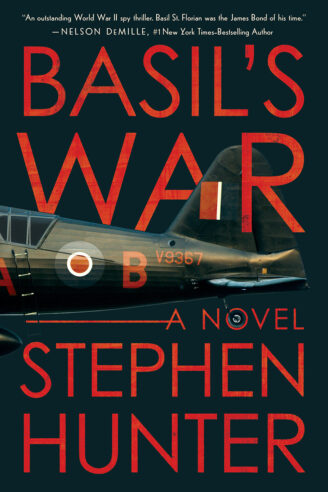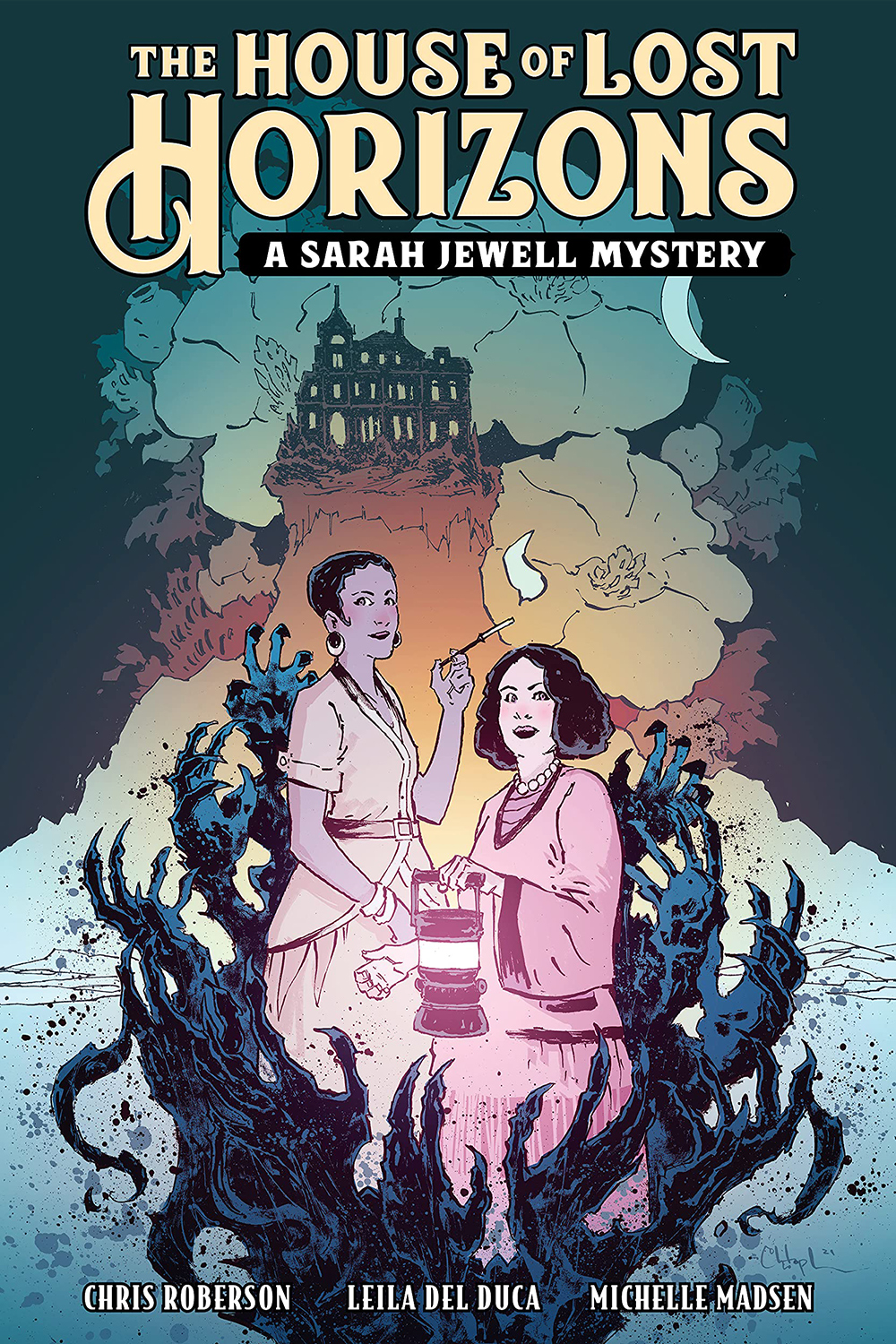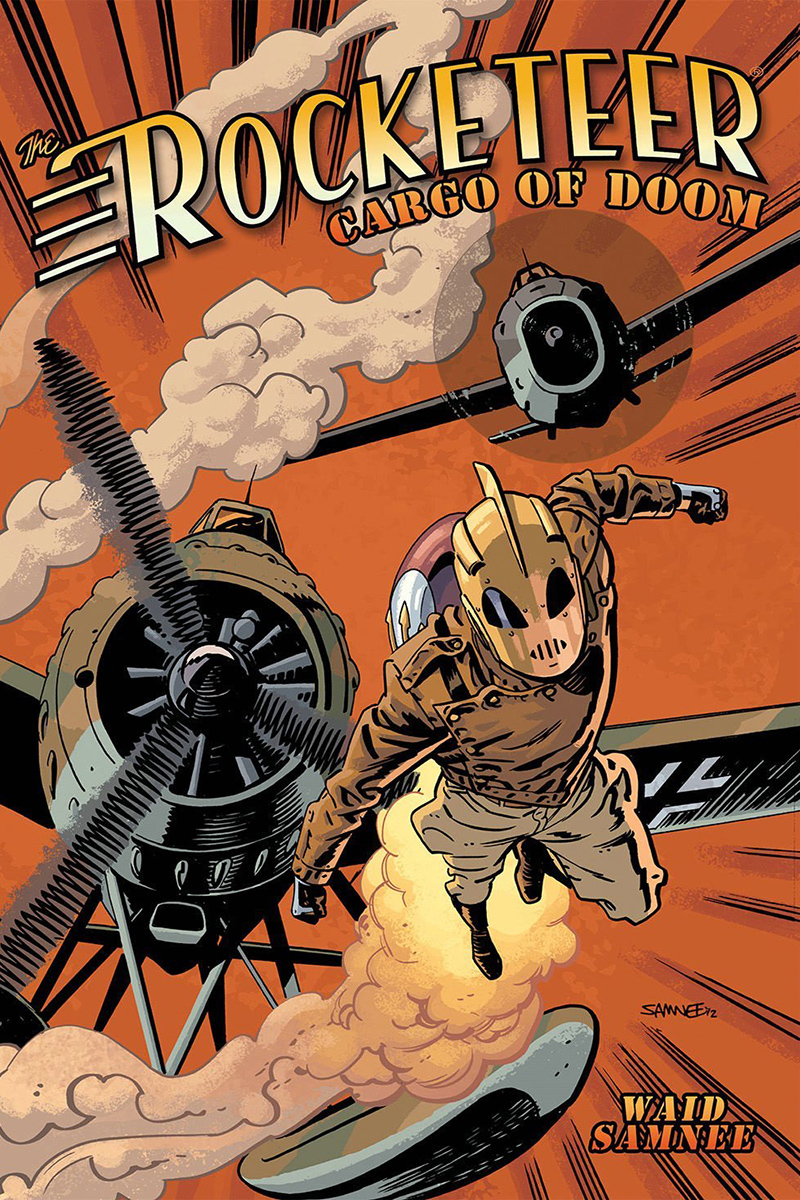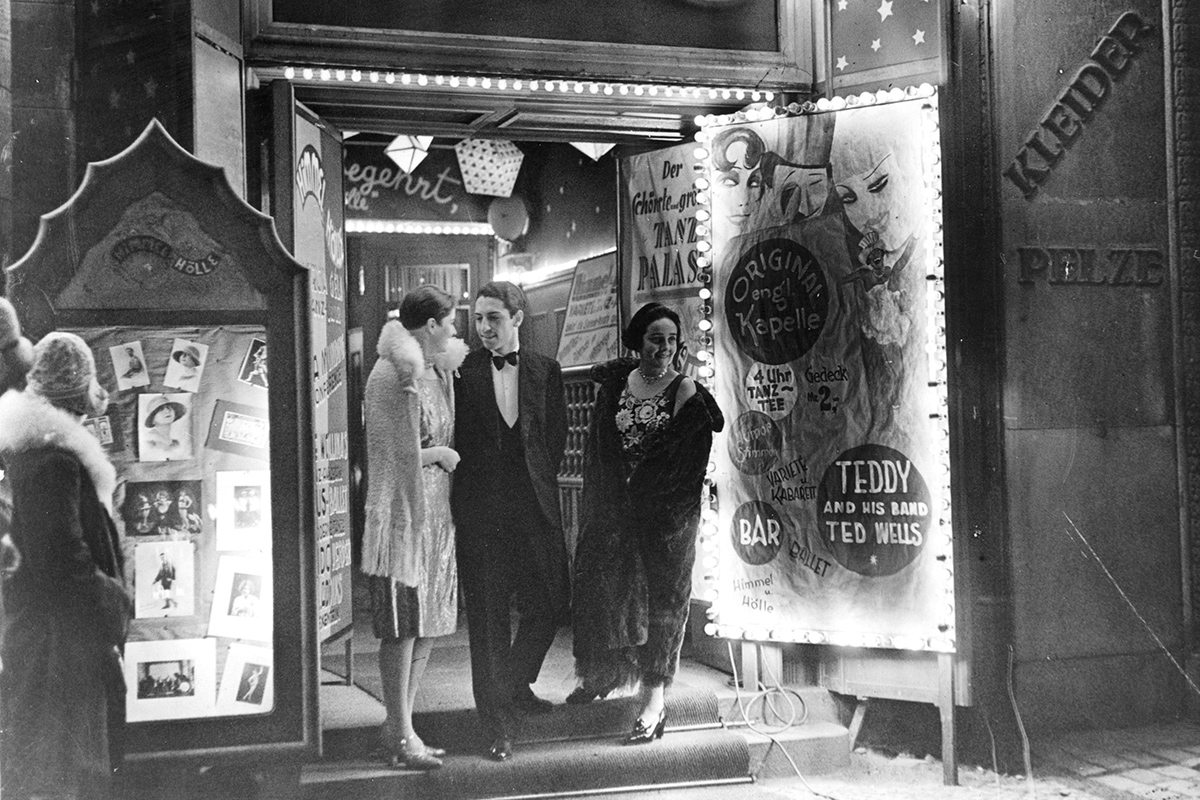Even as we pass eighty years since the days of Spitfires and Messerschmitts, Britain’s fight against the Nazis maintains an heroic luster. To many Britons, it was their country’s finest hour as people came together to withstand the German bomber fleets. Even many Americans like myself have had such feelings, for it is a seemingly obvious episode of pure good versus pure evil.
Here we will discuss an American take on the British legend: Stephen Hunter’s Basil’s War.
The protagonist, Basil St Florian, is compared to James Bond in one of the quotes on the cover, a comparison that is apropos. He is introduced in the bedroom of a film star of his day (I’ll let you have the pleasure of finding out who), to be called upon by his employers. Basil has a history as a troublemaker, losing job after job, post after post, until he accepts a position as agent that lets him do irresponsible things and be paid for it. He has a coolness that the more reserved Bond actors brought to the role, and one which takes Basil away from the zaniness of Roger Moore and closer to Tinker, Tailor, Soldier, Spy (review here), if with more on-the-ground action.
That ground is occupied France, mostly Paris. In terms of setting and plot, the book will not surprise readers of World War II fiction. Hunter captures the suffocating nature of the occupation well, but juxtaposes it with the beauty that is Paris. It is a city, contends Basil, that retains all of its grandeur and splendor even under a foreign thumb. It is a quiet element of the story, but one that adds a lot upon reflection.
For most of the book, the story alternates between “mission” and “briefing” sections: one chapter gives Basil the information he needs, the next sees him in action. It’s a format that works for this sort of thriller. It allows Hunter to choose which pieces of information to drip-feed to the reader, carefully crafting suspense to drive along the narrative.
I won’t spoil it, but the ending is odd. I wouldn’t say anything feels unearned, but Hunter subverts the standard finales of this sort of plot in a way that might irk some readers. I was fine with it, but those who expect something more conventional may end up disappointed.
I have read my share of complicated books, but sometimes all one needs is simple fun, and Basil’s War is that. If you want a fun romp through Western Europe in World War II, you could do much worse than this.





